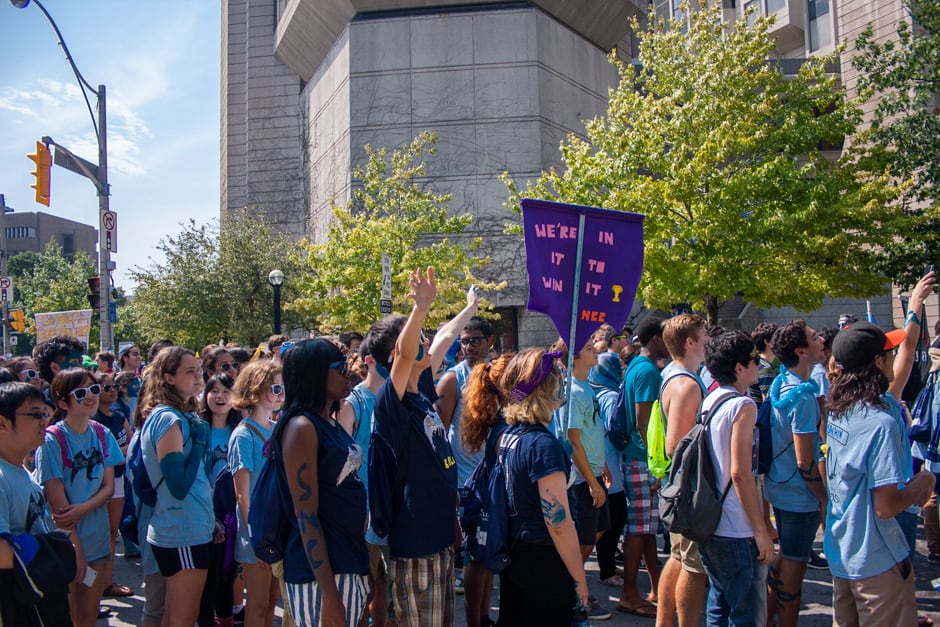This year, in the wake of the frosh week chant controversy at St Mary’s University (SMU) and the University of British Columbia (UBC) last year, divisions across U of T altered their frosh week chants in a bid to crack down on offensive material. Interdivisional rivalry plays a large role in frosh week, with first-year students encouraged to take pride in their division and to engage in friendly competition.
Although student governments are autonomous, many orientation coordinators consulted with their college administrations when looking at their chants. Tim Worgan, dean of students and residence at Innis College, worked with orientation coordinators at Innis College to review their cheers.
“A couple of traditional verses were dropped, not because they were vulgar, but because the students decided they were no longer relevant,” Worgan said.
Alex Huntress-Reeve and Nicole Thompson, Innis College orientation coordinators, said they supported the steps taken to end rape culture on campus. However, they made a distinction between rape culture and sexual expression. “These two things are separate and should not be lumped together,” Reeve and Thompson said in a joint statement.
Reeve and Thompson reported that, this year, they removed some cheers from Innis College’s frosh week chant repertoire because they crossed the line. “We must always be conscious that this line is not taken to either extreme,” they said.
Prompted by last year’s controversies, Trinity College orientation coordinators also chose to discuss their cheers with the Trinity College dean of students, Jonathan Steels. According to orientation coordinator Marissa Martins, some of Trinity’s cheers were modified and removed after honest discussion of each of their intentions and origins.
“Without compromising Trinity tradition, we decided, as a team, to veto some cheers that we thought might promote hatefulness rather than friendly rivalry, and sexual humour that might cross the line of being offensive,” Martins said.
Melinda Scott, dean of students at University College, said that it was important to remember that the goal of orientation week is to welcome new students to U of T. Scott emphasized that, no matter where cheers happen, they should be respectful. “[Make] sure the things that you do behind closed doors are the same things that you would do in public,” she said.
Yolen Bollo-Kamara, president of the University of Toronto Students’ Union, praised the effort to eliminate oppressive cheers, which she said could set the tone for the rest of the year. Bollo-Kamara also expressed hope that U of T’s school spirit will improve over the coming year.
“I think that we can all do more to come together and really unite the campus as one U of T community,” she said, adding: “I hope that [U of T-wide cheers] will encourage intercollegiate and intercampus events and collaboration.”


